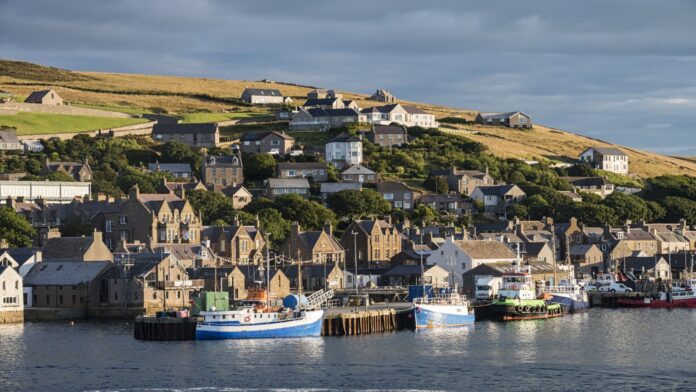Stromness village in Scotland’s Orkney islands. The iconic archipelago is considering the prospect of leaving Britain to become part of Norway.
Nicola Colombo | Istock | Getty Images
An iconic archipelago off the northeast coast of Scotland is looking at ways it might split off from the U.K. and potentially become a self-governing territory of Norway.
Under new proposals brought forward by the local council, the Orkney Islands will explore “alternative forms of governance,” including changing its legal status within Britain, as it seeks to provide more economic opportunities for islanders.
One potential route being considered could see the archipelago leverage its energy production capabilities — including an oil terminal on Flotta island and other renewable resources — to gain greater economic independence, according to council leader James Stockan, who brought the motion.
Stockan said that no thorough analysis of Orkney’s contributions to the U.K. economy had been carried out and, as such, the islands had been “failed dreadfully” by both the U.K. and Scottish governments and neglected of fair funding.
“We know that we have contributed for the last 40 years through north sea oil, and the dividend we get back isn’t sufficient to keep us going,” he told BBC Radio Scotland.
Under the U.K.’s devolved system of government, Orkney, one of 32 council areas in Scotland, receives allotted funding from the Scottish government.
“We’ve got a unique opportunity right at the heart of all the wind projects round our waters,” Stockan added.
A Norse kingdom
Other potential options being discussed by councilors could see Orkney secure a “Nordic connection” with Denmark, Norway or Iceland, or establish a crown dependency structure like that enjoyed by Guernsey, Jersey and the Isle of Man, Stockan said.
Orkney was under Norwegian and Danish rule until the late 15th century, when the islands were handed to Scotland as security for the wedding dowry of Margaret of Denmark in her marriage to King James III of Scotland.
The islands are home to some of the oldest and best-preserved Neolithic sites in Europe, as well as stunning landscapes and a wealth of marine and avian wildlife.
Ring of Brodgar, part of the UNESCO world heritage site Heart of Neolithic Orkney. This neolithic henge monument and stone circle is one of the main attractions of the Orkney Islands.
Reda&co | Universal Images Group | Getty Images
“We were part of the Norse kingdom for much longer than we were part of the United Kingdom,” Stockan said. “On the street in Orkney people come up and say to me when are we going to pay back the dowry, when are we going back to Norway.”
“There is a huge affinity and a huge deep cultural relationship there. This is exactly the moment to explore what is possible,” he added.
A spokesperson for the U.K. government said in a statement that it is providing £2.2 billion ($2.8 billion) to level up U.K. communities, including £50 million to grow the economies of Scotland’s Islands, including Orkney.
“We will always be stronger together as one United Kingdom, and we have no plans to change the devolution settlement,” the statement added.
Spokespersons for the Scottish and Norwegian governments did not immediately respond to CNBC’s request for comment.
The motion will be discussed by council members on Tuesday. If agreed upon, it would mark just the first stage in likely lengthy and contentious talks with the U.K. and Scottish governments.
The discussion comes amid a wider debate around the devolution of power in the U.K., with other cities and counties including Manchester and Cornwall securing deals to gain greater autonomy and self-governance.
Orkney Islands Council previously voted in 2017 for the islands to have a “stronger voice,” though they stopped short of backing full independence.


